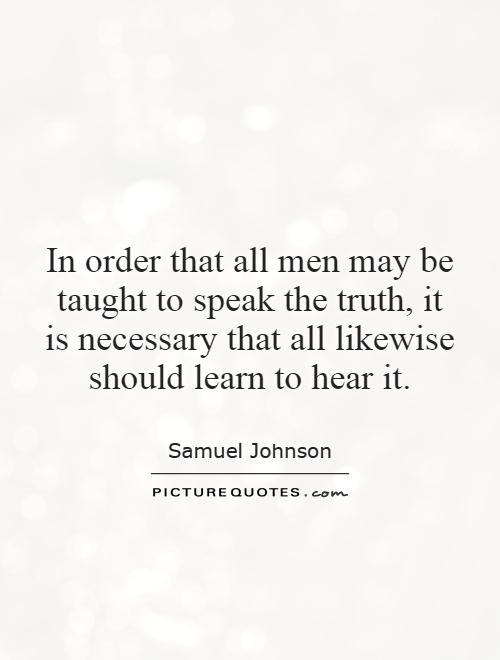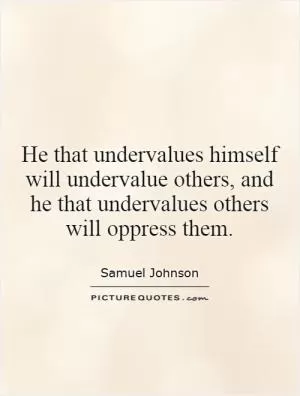In order that all men may be taught to speak the truth, it is necessary that all likewise should learn to hear it

In order that all men may be taught to speak the truth, it is necessary that all likewise should learn to hear it
Samuel Johnson, the renowned English writer and lexicographer, was a firm believer in the importance of truth and honesty in all aspects of life. He understood that in order for society to function properly, it was essential for individuals to both speak the truth and to be able to hear it. Johnson believed that the ability to speak the truth was a virtue that should be cultivated and practiced by all, as it was the foundation of trust and integrity in relationships.Johnson's famous quote, "In order that all men may be taught to speak the truth, it is necessary that all likewise should learn to hear it," reflects his belief that truth-telling is a two-way street. It is not enough for individuals to simply speak the truth; they must also be willing to listen to the truth when it is spoken to them. Johnson understood that hearing the truth could be difficult and uncomfortable, but he believed that it was necessary for personal growth and moral development.
In Johnson's view, the ability to hear the truth required humility, open-mindedness, and a willingness to confront one's own faults and shortcomings. He believed that individuals who were unable or unwilling to hear the truth were doomed to live in ignorance and self-deception. Johnson saw truth-telling and truth-hearing as essential components of a virtuous and well-lived life.
Johnson's own life and work exemplified his commitment to truth and honesty. As a writer and critic, he was known for his blunt and sometimes harsh assessments of literature and society. He was not afraid to speak his mind, even when his opinions were unpopular or controversial. Johnson's commitment to truth-telling earned him both admirers and detractors, but he remained steadfast in his belief that honesty was the best policy.












 Friendship Quotes
Friendship Quotes Love Quotes
Love Quotes Life Quotes
Life Quotes Funny Quotes
Funny Quotes Motivational Quotes
Motivational Quotes Inspirational Quotes
Inspirational Quotes